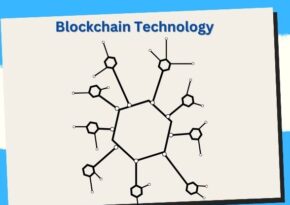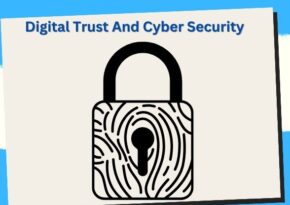
Chain of Trust: How Blockchain Technology Guarantees Transparent Commerce 


 Blockchain and Supply Chain Transparency for Trusted Commerce
Blockchain and Supply Chain Transparency for Trusted Commerce 

In the age of global commerce, the journey of a product from its origin to the hands of the consumer is a complex web of transactions, intermediaries, and logistics. Trust in products’ authenticity, quality, and ethical standards is paramount. Enter blockchain technology, a revolutionary tool that’s transforming supply chains and ensuring transparency like never before. In this article, we’ll embark on a journey through the blockchain world and its role in establishing trust, transparency, and ethical commerce.
The Modern Supply Chain Challenge
The supply chain is the backbone of the global economy, enabling products to flow from manufacturers to distributors to retailers and finally, into the hands of consumers. However, this intricate web of transactions often faces significant challenges:
- Complexity: Supply chains can be extremely complex, involving multiple parties, regions, and modes of transportation.
- Lack of Transparency: Many supply chains lack transparency, making it challenging to trace the origin of products or verify their authenticity.
- Counterfeiting: Counterfeit products are a significant issue in various industries, including pharmaceuticals, luxury goods, and electronics.
- Ethical Concerns: Consumers are increasingly concerned about products’ ethical and environmental impact, such as fair labor practices and sustainable sourcing.
- Regulatory Compliance: Compliance with various international regulations adds another complexity to supply chain management.
Blockchain: The Transparency Enabler
Blockchain technology, often associated with cryptocurrencies like Bitcoin, is a decentralized and tamper-resistant ledger. Its core strength lies in its ability to provide a single, immutable source of truth that can be accessed by all parties in a supply chain. Here’s how it works:
- Decentralization: Data is not stored in a single location but distributed across a computer network (nodes). This decentralization ensures that no single entity has control over the data.
- Immutable Ledger: Once data is recorded on the blockchain, it cannot be altered or deleted, creating a permanent and auditable record.
- Transparency: All authorized participants in the supply chain can access and view the same information, promoting transparency.
- Smart Contracts: These self-executing contracts automatically execute predefined actions when certain conditions are met, streamlining processes and reducing the need for intermediaries.
Blockchain in Supply Chain: Use Cases
Blockchain technology is finding applications across various industries to address supply chain challenges and enhance transparency:
- Food Safety: Blockchain enables tracking food products from farm to table. The source can be quickly identified in case of contamination or a recall.
- Pharmaceuticals: Ensuring the authenticity of medications is critical. Blockchain helps track pharmaceutical production and distribution, reducing the risk of counterfeit drugs.
- Fashion and Luxury Goods: Brands can use blockchain to verify the authenticity of high-end products and trace the source of raw materials like diamonds or leather.
- Electronics: Consumers can verify the authenticity and origin of electronics, reducing the risk of purchasing counterfeit or substandard products.
- Sustainable Supply Chains: Blockchain can track materials sourcing, ensuring compliance with ethical and sustainability standards.
Real-World Examples
Let’s take a closer look at some real-world examples of how blockchain is making waves in the realm of supply chain transparency:
- Walmart’s Food Traceability: Retail giant Walmart uses blockchain to track the origin of its leafy greens. In case of a food safety issue, the source can be identified within seconds, reducing the impact of recalls.
- IBM Food Trust: IBM’s Food Trust platform enables food producers, distributors, and retailers to trace the journey of food products, enhancing transparency and trust.
- De Beers’ Diamond Tracer: De Beers, one of the world’s largest diamond companies, uses blockchain to track the origin of diamonds, ensuring they are conflict-free.
- Provenance in Fashion: Companies like Provenance use blockchain to verify the authenticity of luxury fashion items, promoting ethical practices in the industry.
- VeChain in Pharmaceuticals: VeChain’s blockchain solution is used in the pharmaceutical industry to verify the authenticity of drugs, reducing the risk of counterfeit medications.
The Benefits of Blockchain in Supply Chain
The adoption of blockchain technology in supply chains brings a multitude of benefits:
- Transparency: Blockchain provides a single source of truth that all authorized participants can access, ensuring transparency at every stage of the supply chain.
- Traceability: Products can be traced back to their origin, reducing the risk of counterfeit goods and ensuring authenticity.
- Efficiency: Smart contracts automate processes, reducing the need for intermediaries and streamlining operations.
- Reduced Fraud: Blockchain’s tamper-resistant nature reduces the risk of fraud and ensures that data remains unaltered.
- Enhanced Trust: Consumers can trust that products meet ethical and environmental standards, driving demand for responsible brands.
- Cost Savings: Streamlined processes and reduced fraud lead to cost savings throughout the supply chain.
Challenges and Considerations
While blockchain holds great promise for enhancing supply chain transparency, there are several challenges to consider:
- Integration: Integrating blockchain into supply chain systems can be complex and costly.
- Standardization: A lack of standardized protocols and practices can hinder interoperability between blockchain systems.
- Data Accuracy: Blockchain relies on the accuracy of the data entered. Garbage in, garbage out applies, so ensuring data accuracy is crucial.
- Privacy: While blockchain is transparent, some data may need to remain private. Balancing transparency with privacy is a challenge.
- Scalability: As more transactions are added to a blockchain, scalability becomes an issue. Scaling solutions are necessary to handle high volumes of data.
The Future of Trusted Commerce
As blockchain technology continues to mature, we can expect even greater strides in supply chain transparency and trusted commerce:
- Interconnected Supply Chains: Multiple supply chains may become interconnected through blockchain networks, further enhancing transparency.
- Consumer Empowerment: Consumers will have the power to make informed choices about the products they buy, based on transparent and verifiable information.
- Global Impact: Supply chain transparency can drive positive change by promoting ethical practices, reducing waste, and enhancing sustainability.
- Regulatory Compliance: Blockchain can facilitate compliance with complex international regulations by providing a verifiable record of adherence.
Conclusion: A New Era of Trust
Blockchain technology has ushered in a new era of trust and transparency in the world of commerce. From food safety to ethical sourcing and beyond, blockchain is revolutionizing supply chains, ensuring that consumers can trust the products they purchase.
As blockchain adoption continues to grow, we can look forward to a future where trusted commerce is the norm, where products are not just items on a shelf but stories that can be traced back to their origins, ensuring a more responsible and ethical global economy.
Related Queries
Unlocking supply chain transparency with blockchain
Guaranteeing transparent commerce with blockchain
Harnessing blockchain for supply chain transparency
Journey of trust in blockchain-powered supply chains
Blockchain’s boost for transparent and trusted transactions
Bridging trust gaps in supply chain commerce with blockchain
Crafting transparent supply chain narratives with blockchain
Nurturing trust in food supply chains with blockchain
Impact of blockchain and supply chain transparency on commerce
Shielding commerce with supply chain transparency through blockchain
Save/Share this story with QR CODE
Disclaimer
This article is for informational purposes only and does not constitute endorsement of any specific technologies or methodologies and financial advice or endorsement of any specific products or services.
 Need to get in touch?
Need to get in touch?

We appreciate your reading. 
1.) 

Your DONATION will be used to fund and maintain NEXTGENDAY.com
Subscribers in the Philippines can make donations to mobile number 0917 906 3081, thru GCash.
3.) 
4.) 
AFFILIATE PARTNERS

World Class Nutritional Supplements - Buy Highest Quality Products, Purest Most Healthy Ingredients, Direct to your Door! Up to 90% OFF.
Join LiveGood Today - A company created to satisfy the world's most demanding leaders and entrepreneurs, with the best compensation plan today.

 Business, Finance & Technology
Business, Finance & Technology













 Connect with confidence in an era of hyperconnectivity. Learn […]
Connect with confidence in an era of hyperconnectivity. Learn […]



